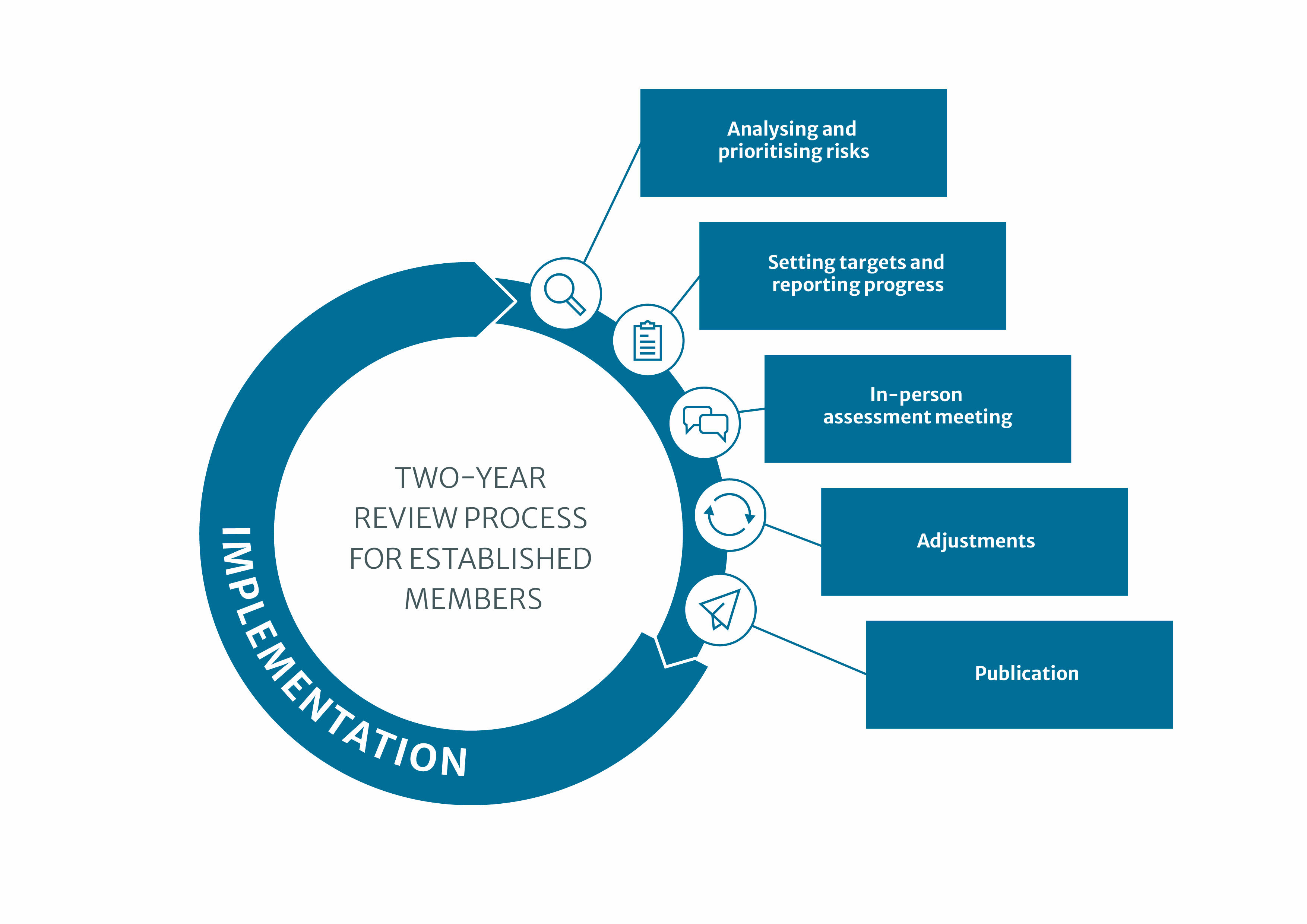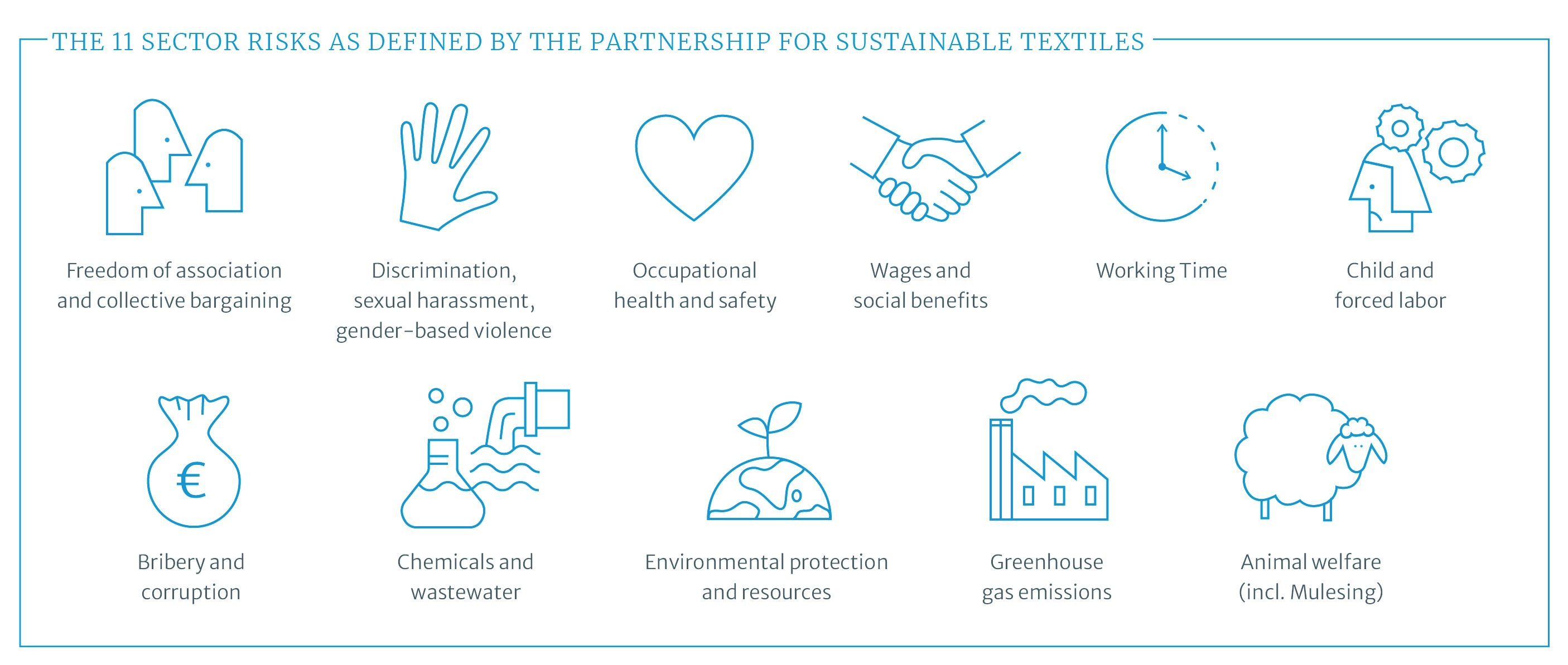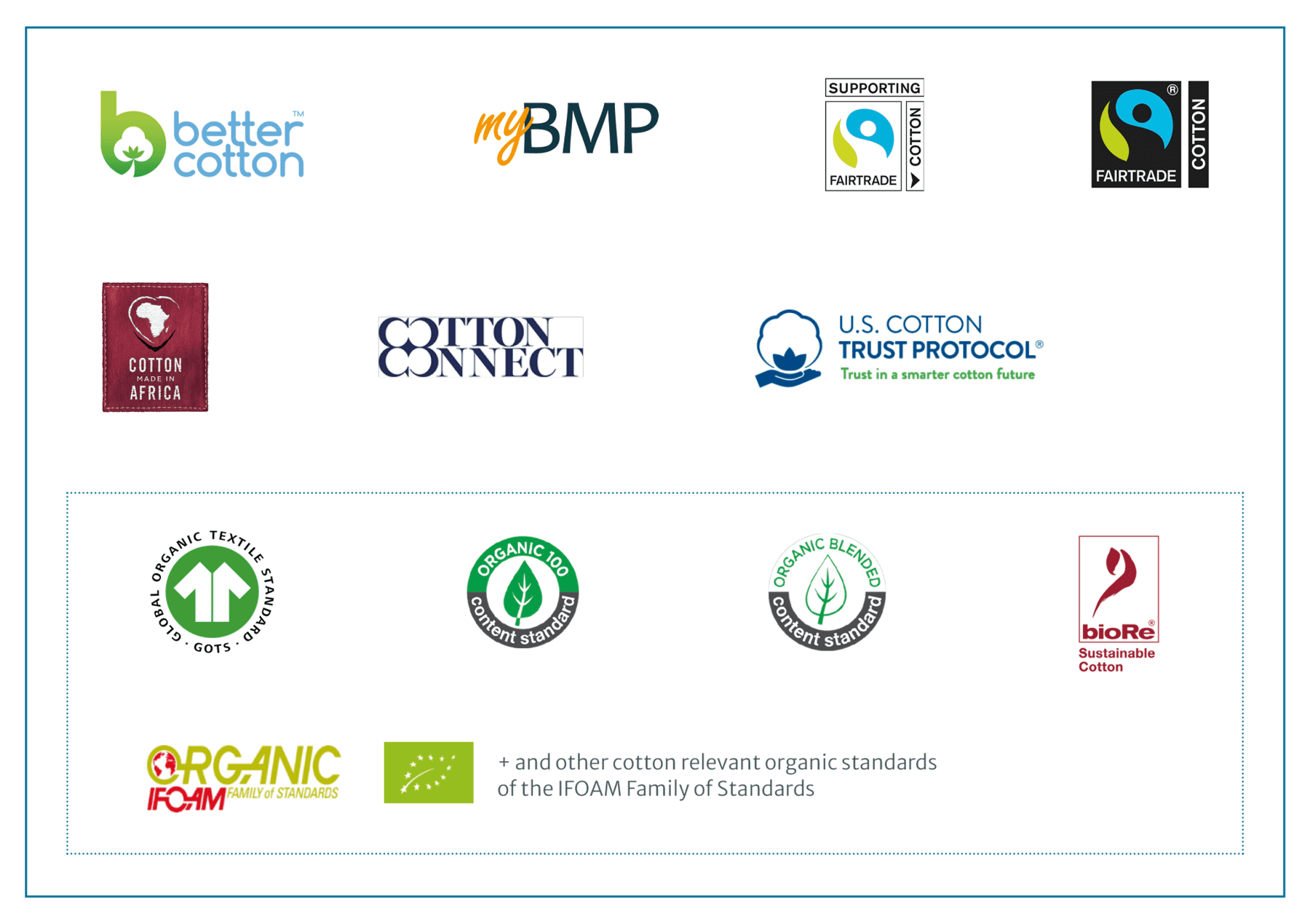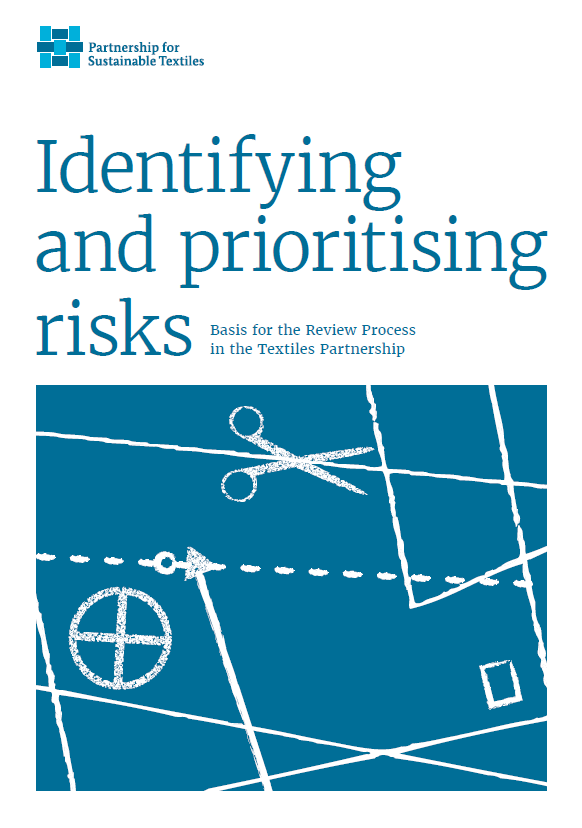Supply Chain Responsibility
The Review Process represents the individual commitment of the companies in the Textiles Partnership to take responsibility for sustainability in their supply chain. The aim of the Review Process is to effectively prevent and mitigate the major social, environmental and compliance risks in the value chain.
An individual risk analysis based on eleven sector risks is the basis of the process (Guide DE and - German multi-stakeholder delegation visits India). On the basis of the results of the risk analysis, the companies derive targets and measures for the next two years. In addition to the prevention and mitigation, the aim is to provide remedial action and compensation in the case of negative effects.
However, the members do not only focus on the future. They also look back. What have they achieved in the past year to make their supply chains more sustainable? What measures have they been able to implement successfully and what goals have they achieved? All these aspects are documented in the progress report.
For the verification and quality assurance of the risk analysis as well as the set objectives and the reported progress, an in-person assessment meeting is held, which is prepared and conducted by an external service provider as well as by the Partnership Secretariat.
This will address in particular the following questions: Are the objectives appropriate to prevent or mitigate the most serious risks? Are the objectives and measures derived in a meaningful and comprehensible way from the risk analysis and the progress report? All reports are then published here .

The members of the other stakeholder groups - i.e. associations, non-governmental organisations, standard setting organisations, trade unions and the Federal Government - also fulfil a reporting obligation in the Partnership. They report on how they have contributed to the Partnership in the past reporting period and what measures they have undertaken to achieve the Textiles Partnership's objectives.
In 2019, the review process was fundamentally revised and due diligence was brought into focus. This process was guided by the requirements and specifications of international frameworks such as the UN Principles for Business and Human Rights, the OECD Due Diligence Guidance for Responsible Supply Chains in the Garment and Footwear Sector and the ILO Labour Standards. In contrast to the past, the members are not pursuing any uniformly binding goals in the Textiles Partnership. Instead, the companies derive targets and measures from their individual risk analysis and prioritization, thus addressing their major risks:

The standards include the Better Cotton Initiative (BCI) standard, the Australian myBMP standard, Cotton made in Africa, Fairtrade Cotton, CottonConnect, and the U.S. Cotton Trust Protocol. The following standards apply to purchasing of organic cotton: the Global Organic Textile Standard (GOTS), the International Association of Natural Textile Industry (NATURTEXTIL IVN) standard, the Textile Exchange Organic Content Standard (OCS), the bioRe Social & Environmental Standard, and all the organic standards forming part of the IFOAM Family of Standards. IFOAM standards, along with the Responsible Wool Standard (RWS), also apply to the purchase of sustainable wool.

All companies in the Textiles Partnership are required to provide access to complaints mechanisms for those potentially affected in their supply chain; this includes, for example, workers at suppliers or residents of local communities. In the 2021 review process, the Partnership companies also reported on grievance and remedy mechanisms and set targets. In their review reports they describe the channels through which affected parties in their supply chain can convey complaints and how they are dealt with. In addition, the number and topics of complaints received are tracked and published in aggregated form for all 54 companies that participated in the Review Process 2021.
In the fiscal year preceding the 2021 review process, all Partnership companies together received approximately 1200 complaints through various complaints channels. In this context, a complaint can be assigned to several sector risks. The actual number is therefore somewhat lower.
By far the most common complaints relate to wages & social benefits, followed by health and safety, working hours, freedom of association, and discrimination and gender-based violence. Complaints were mainly submitted through internal complaints mechanisms, the Fear Wear Foundation mechanism, and the Accord on Fire and Building Safety in Bangladesh.
Number of complaints by sector risk:
- Wages and social benefits: 749
- Health and safety: 123
- Working hours: 97
- Freedom of association and collective bargaining: 89
- Discrimination, sexual harassment and gender-based violence: 84
- Child and forced labour: 17
- Corruption: 14
- Environment, Ressources & Fibres: 10
- Chemicals & Wastewater: 1
- Greenhouse gas emissions: 0
- Animal Welfare (incl. Sheep Farming, Mulesing): 0
Here you can find more information on the Complaints Mechanisms und zur Partnership Initiative Complaints Mechanisms.



